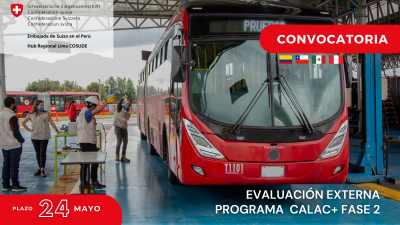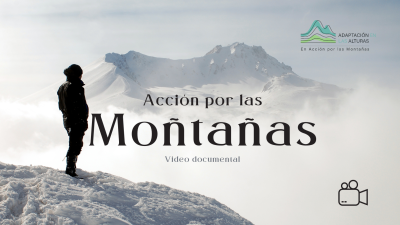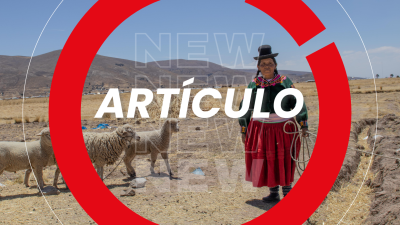SUNASS visited successful experiences of the SABA+ Project in the regions of Puno, Piura, Lambayeque and Huánuco
A delegation made up of SUNASS’s officers from Lima’s main office, officers from the Ministry of Housing, Construction and Sanitation and Forest Trends started their journey last October 29 in order to socialize lessons on sanitation service management at the rural level, and assess factors that contribute to adequate management and governance of community organizations.
The SABA+ Project of the Swiss Cooperation COSUDE, throughout its more than 20 years of implementation, provided technical and financial support to the Peruvian government in water- and sanitation-related initiatives, in close coordination with the Ministry of Housing, Construction and Sanitation and the Ministry of Development and Social Inclusion, in order to increase access to services, water quality coverage, and basic sanitation services in the poorest rural areas of Peru and to nurture global debate by sharing this experience.
In this context, SUNASS reached out to COSUDE in order to gain awareness of the Rural Basic Sanitation Model, developed through SABA in 14 regions of the country, thus obtaining information about the strategies, methodologies and tools for better rural water and sanitation management with a comprehensive and sustainable approach and institutional coordination at the subnational level. Furthermore, the Learning Route which started in October 29 with the visit to Puno; November 12, Piura; November 13, Lambayeque; and finally November 19 in Huánuco.
First stop. Puno (29-30/11)
The first day, the delegation visited the district municipality of Platería, and was received by the major and officers. It became aware of how the municipality has been working on local sanitation, highlighting interventions implemented in 6 populated areas with comprehensive rural water and sanitation systems that have generated a major impact on the population which now has access to quality water, as a result of the effort made by the health sector and the efficient self-management led by organized communities.
They also made a visit to ATM, where they were briefed on the instruments and a series of tools that contribute to providing technical assistance and monitoring to its community organizations.
Next, they went to the rural community of Camata, where community leadership and organizational skills were observed, thus showing the high level of empowerment of the user families.
On the second day, they held meetings with officers from the Regional Bureau of Housing, Construction and Sanitation, the Regional Bureau of Health belonging to the Regional Government of Puno, as well as the Citizen Service Center of MVCS and the Round Table on the Fight against Poverty; where all representatives shared their experiences related to coordinated work which has generated advances and achievements in Puno in terms of rural water and sanitation.
The North, knowing the experience in Piura and Lambayeque (12-13/11)The delegation was made up of 6 officers from SUNASS, led by Iván Lucich, Chairman of the Board of Directors; Mary Tesen and Maritza Trujillo from MVCS’s National Bureau of Sanitation; Fernando Momiy from Forest Trends; Cristina Portocarrero from Condesan; representatives of the regional and local governments, and the specialists from SABAVIDA.
The successful experience in the rural area of the Mochumí district, in the region of Lambayeque was shared, and opportunities were identified for technical assistance and cooperation in rural water and sanitation.
SUNASS stressed the importance of providing support to cooperating agencies to generate partnerships that allow them to work in a planned manner, with tangible results that improve management of community organizations and the protection of water sources.
 |
 |
The agenda included the visit to JASS Santa Rosa Alta from the district of Chaqlla in the province of Panao, Huanuco, where continuous improvement of efficiency by JASS in terms of service management was observed. They are also adding productive activities that contribute to better living conditions of locals, who have worked in conjunction with the health sector and the local educational institution.

On the second day, the delegation went to JASS, Rosavero, where a form of efficient management was evident in the measurement of water consumed by users based on micro-measurement systems, facilitating rational use of water. On the other hand, some of the institutions that are part of the Regional Water and Sanitation Council (COREAS) presented the current form of coordinated water and sanitation management they are implementing using the strategies, methodologies and tools that were transferred by the Swiss Cooperation through the SABA Project, during its intervention in said area.
Useful links:SABA+ Project, Project Sheet, Swiss Embassy, Swiss Agency for Development and Cooperation COSUDE









